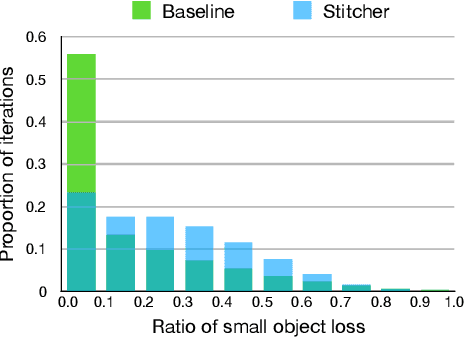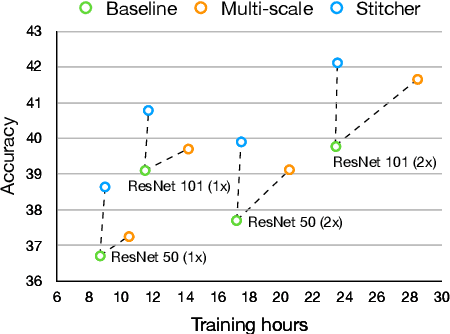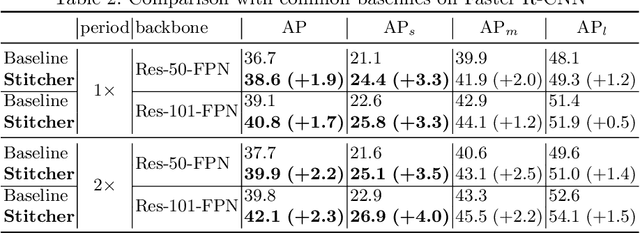Stitcher: Feedback-driven Data Provider for Object Detection
Paper and Code
Apr 26, 2020



Object detectors commonly vary quality according to scales, where the performance on small objects is the least satisfying. In this paper, we investigate this phenomenon and discover that: in the majority of training iterations, small objects contribute barely to the total loss, causing poor performance with imbalanced optimization. Inspired by this finding, we present Stitcher, a feedback-driven data provider, which aims to train object detectors in a balanced way. In Stitcher, images are resized into smaller components and then stitched into the same size to regular images. Stitched images contain inevitable smaller objects, which would be beneficial with our core idea, to exploit the loss statistics as feedback to guide next-iteration update. Experiments have been conducted on various detectors, backbones, training periods, datasets, and even on instance segmentation. Stitcher steadily improves performance by a large margin in all settings, especially for small objects, with nearly no additional computation in both training and testing stages.
 Add to Chrome
Add to Chrome Add to Firefox
Add to Firefox Add to Edge
Add to Edge